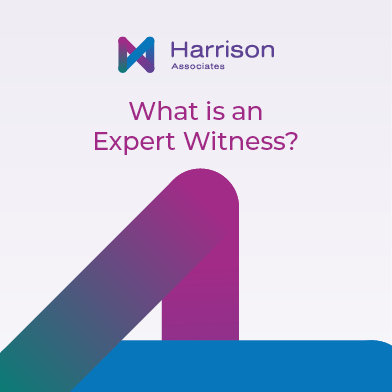An expert witness is a trained, recognised professional who can provide the court with a statement of opinion on any admissible matter. They are appointed when additional and unbiased expertise is needed to help support a complex case, and their duty is to give to the Court or tribunal an impartial opinion on aspects of a case which are in dispute.
Their expertise, may come from their practice or study, leading them to become specially qualified in a recognised field, such as finance, forensics, medicine, or science.
The opinion of an expert witnesses also carries significant weight in court, as it is professional, unbiased, and based on factual evidence only. Their expertise can be highly valuable during a dispute, and sometimes even critical when ruling.
What types of expert witnesses are there?
Expert witnesses can cover a countless number of fields. From midwifery and physiotherapy to occupational speech and language therapy (SALT), with some even concentrating on adult or child age groups too.
However, we are proud to say that we have gone even further when it comes to the criteria of our panel, offering expert witnesses who all have specialist training to ensure the quality of their testimony.
These can range from cerebral palsy and palliative care, through to spinal cord injury, brain injury, peripheral nerve conditions and emergency medicine, plus much more.
How can an expert witness help in a complex case?
Expert witnesses are needed in a variety of Court cases, such as medical negligence or cases involving serious injury.
Their evidence is often needed to provide a narrative to the Courts, or to better communicate to the jury more complex and nuanced information. For example, an expert witness may be giving their opinions of a claimants’ whiplash injuries, including neck strain, spinal injuries, damaged ligaments, or muscles following a road traffic accident, or they may be establishing an employers’ liability involving workplace accidents, work-related stress or poor management.
An expert witness could also help to predict the toll recovery could take on a claimant, and the affect it could have following a serious injury. For example, whether any mental health concerns struggles have begun, home adaptations are needed to cope with severe mobility issues or even if life-long care is needed to support a brain injury.
Though overall, expert witnesses may be instructed to provide a specialist opinion in all sorts of settings, including criminal courts, family courts, civil courts, tribunals, and in the case of regulated professionals, fitness to practice hearings.
Will every serious injury case include an expert witness?
Not necessarily. In the UK, the Court must give permission for an expert witness to give evidence, and they will also give formal instructions as part of the Expert Witness’s Report which will be seen by the other side and the Court. However, they will only ever be appointed if their skills and ability to provide independent expertise can be recognised in a dispute.
Are expert witnesses credible?
An expert witness’ views will be always objective, meaning that their opinions will only ever be based on factual observations, and not serve to deliberately favour a particular party in the case. As a result, it is essential that an expert witness has a high sense of honesty and integrity, as the giving of false statements in court or in subscribed documents, is treated very seriously.
Because of this, when the final Expert Witness’s Report detailing their findings, rationale and independent opinions is produced and submitted to the Court, it will also include a clause which states that they have understood their duty to the court, complied with all duties, and are aware of the relevant requirements under the civil procedure rule (CPR).
How Harrison Associates can help
Leading the field in case management and expert witness services, Harrison Associates use excellence in clinical governance to ensure the most appropriate associate with the most suitable skills and training is appointed to each case.
For us, the right outcomes rely on high quality evidence and unbiased testimony, delivered by the right experts, always. That’s why our team will always recommend the most suitable of our specialist expert witnesses, based on their skills and their availability to provide the independent, objective reports needed in each individual case.
We select our expert witnesses using the industry’s highest standards of excellence, ensuring that each has a relevant health or social care qualification, registration with the appropriate professional body, a minimum eight years’ postgraduate experience and a wealth of specialist experience.
As a result, clients can rest assured that the professional we allocate to a case will always be able to provide independent and objective testimony, even on the most challenging of cases.
To find out more about our services, contact our team today.




